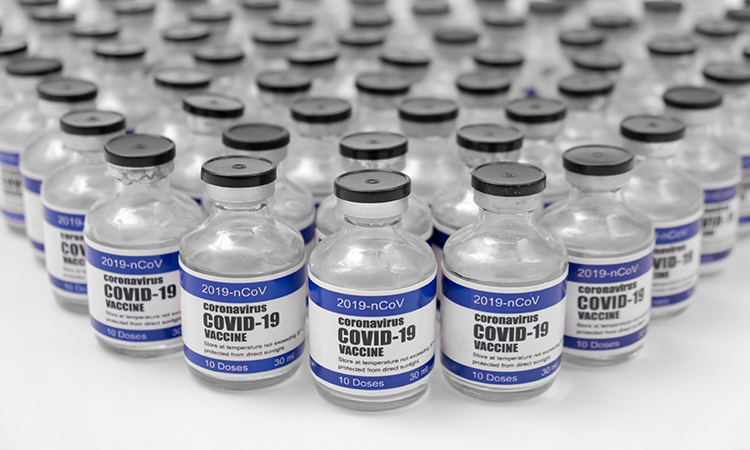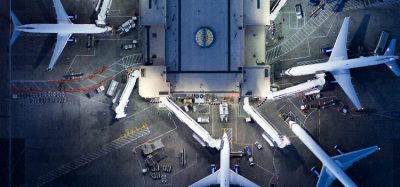Enabling the efficient delivery of the future COVID-19 vaccine
- Like
- Digg
- Del
- Tumblr
- VKontakte
- Buffer
- Love This
- Odnoklassniki
- Meneame
- Blogger
- Amazon
- Yahoo Mail
- Gmail
- AOL
- Newsvine
- HackerNews
- Evernote
- MySpace
- Mail.ru
- Viadeo
- Line
- Comments
- Yummly
- SMS
- Viber
- Telegram
- Subscribe
- Skype
- Facebook Messenger
- Kakao
- LiveJournal
- Yammer
- Edgar
- Fintel
- Mix
- Instapaper
- Copy Link
Posted: 15 October 2020 | Emir Pineda - Miami International Airport | No comments yet
TIACA’s Board member, Emir Pineda, Manager of Aviation Trade and Logistics at Miami International Airport, answers International Airport Review’s questions regarding how the development and transportation of a COVID-19 vaccine will impact the air cargo sector.


In August 2020, The International Air Cargo Association (TIACA) and Pharma.Aero announced a collaboration focused on providing global guidance for the air cargo industry to enable the optimal transportation of the expected COVID-19 vaccine.
Following this, International Airport Review spoke to Emir Pineda, Manager of Aviation Trade and Logistics at Miami International Airport (MIA) and TIACA Board member, regarding this industry development.
Why did TIACA choose Pharma.Aero for this collaboration?
It was a natural evolution after the Memorandum of Understading (MoU) that we signed with Pharma.Aero in November 2019 during our Executive Summit in Budapest.
Pharma.Aero represents an association with cross-industry collaboration among pharmaceutical manufacturers, CEIV-certified cargo communities, airport operators and other air cargo industry stakeholders dedicated to improving the logistics process for pharma shippers.
This combination and focus on pharma shippers made it an easy choice to team up based on our joint ambition to provide useful guidelines to our members to maximise their preparedness for transporting and distributing the future COVID-19 vaccines.
What does ‘optimal transportation’ for a COVID-19 vaccine look like?
The optimal transportation of the vaccine can be translated into the most efficient, safest and widely distributed vaccine possible. This will require collaboration all along the supply chain, excellent communication, proper handling of the product and sufficient planning to make sure that transportation goes smoothly. The entire global supply chain is now working on this challenge.
The guidance will be developed gradually in four work packages – what are these?
The four work packages of Project Sunrays are divided as follows:
- Based on a guiding questionnaire, engage with and interview pharmaceutical companies that are present in the COVID-19 vaccine race, collect insights about the future vaccines and understand shippers’ logistics demands, expectations and requirements
- Survey air freight industry stakeholders to understand current plans, capacities and capabilities in regard to handling, storing, transporting and delivering future vaccines
- Once the vaccines are approved by health authorities and enter production modes, collect the detailed product specifications needed to plan the logistics: Manufacturing locations, temperature range, transportation requirements and tracking needs
- Deliver guidelines and recommendations for the air cargo industry to handle, store, transport and deliver the future vaccines.
Why are these four elements key to the development of transporting the COVID-19 vaccine?
It will provide a roadmap on how best to meet the enormous challenge of transporting the vaccine and distributing it to eight billion people worldwide. We do not want to experience the chaos that the industry suffered at the beginning of the health crisis with personal protective equipment (PPE).
The idea is that our guidelines will assist those in the supply chain with their planning and preparation and identify the challenges and potential solutions; ensuring the transportation of the vaccine occurs in the safest and most efficient manner. It is also important to not re-invent the wheel and build on existing procedures and processes for the handling and transport of pharma.
The Sunrays guidelines might not provide all the answers, but it will be a reference for air freight professionals to work from.
How will the distribution of the COVID-19 vaccine vary geographically? How will TIACA overcome this challenge?
This is a difficult question to answer. It will depend on many factors: Where it will be manufactured, the policies of each individual government, the air freight capacity – including the available capacity of the on-ground facilities – and the distribution channels.
It is out of scope of our Sunrays project, but international organisations have teamed up to guarantee fair and equitable access to the COVID-19 vaccines for every country in the world under the COVAX initiative. COVAX is co-led by Gavi, the Coalition for Epidemic Preparedness Innovations (CEPI) and the World Health Organization (WHO).
Is the global air cargo sector ready for the increase in demand? How would you recommend airports and companies prepare for this?
I am not sure, but they are certainly starting to get ready, like us at Miami Airport and many of the members of TIACA.
My recommendation to airports and airlines, as well as ground handlers and forwarders, is to begin planning now. All indications are pointing towards a vaccine being ready before the end of the year, with distribution starting shortly after government approval.
Collaboration will be key to success: I urge all players to start communicating up and down the supply chain; find out where the gaps are and develop plans to address them.
I think flexibility will also be paramount: How well you are able to pivot from difficult challenges will determine how successful you will be.
Last, but not least, be patient but determined: It’s going to take a lot of time to get the vaccines to everyone, so let’s work together for the good of all.
How else do you think aviation can assist in developing a COVID-19 vaccine?
Air cargo plays a vital role in sustaining the world economy and supporting social development. By transporting emergency products, PPE and goods supporting stay-home policies worldwide, air cargo has been instrumental in helping governments, the medical community and businesses fight this pandemic.
Air cargo will enable the safe, reliable, efficient and fast delivery of future COVID-19 vaccines.
Emir Pineda is the Manager of Aviation Trade and Logistics for the Marketing Division of the Miami-Dade Aviation Department, which operates Miami International Airport. His duties include marketing/promotion, business development, technology/innovation, e-commerce facilitation, trade and logistics, infrastructure expansion and air service development. Pineda is also Chairman of the Florida Chamber of Commerce Trade and Logistics Institute and serves on the Board of Directors of TIACA.
Issue
Related topics
Air freight and cargo, Airside operations, COVID-19, Workforce
Related airports
Related organisations
Coalition for Epidemic Preparedness Innovations (CEPI), Gavi, Pharma.Aero, The International Air Cargo Association (TIACA), World Health Organization (WHO)


















